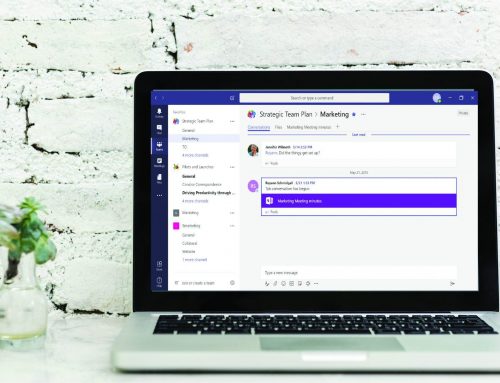Project Description

Hospital Executives Increase Performance, Strategic Focus with Productivity Solutions
Denver Health is a comprehensive medical institution that includes a large, downtown hospital; eight clinics; and the emergency medical response system for the City and County of Denver, Colorado. Some executives at Denver Health wanted to find more time to focus on planning and learning about the newest advances in their fields rather than managing their email accounts and calendars, and micromanaging their staff. Working with partner McGhee Productivity Solutions, Denver Health executives and managers participated in Take Back Your Life® sessions and executive coaching. McGhee’s productivity models teach how to fully use the features of Microsoft Office Outlook 2007 to help improve productivity, communications management, and strategic planning. Executives also gained more control over work projects and meetings, and obtained a better balance between work and their personal lives.
Situation
Denver Health integrates acute hospital and emergency care with public and community health to deliver preventive, primary, and acute care services to the residents of Denver, Colorado. Denver Health manages Denver Health Medical Center, a 500-bed hospital facility that houses the area’s only academic Level I trauma center, the highest possible rating given by the American College of Surgeons. In addition, the medical group provides the area’s emergency medical response system and manages eight neighborhood clinics.
At the helm of such a large enterprise, senior leaders at Denver Health found themselves spending too many hours each day trying to manage the information flowing through the medical center’s Microsoft Office Outlook 2007 e-mail and calendar system. “I was working 12-hour days and spending about 3 and a half hours per day on just email,” says Gregory Veltri, Chief Information Officer (CIO) at Denver Health. “Coming up through the IT organization, I was used to relying on my Outlook email and calendar to get my work done, yet I was barely keeping up with the hundreds of messages and dozens of meeting requests that I received daily.” As a result, Veltri found it difficult to find the time to manage and plan for business needs and departmental growth. “My ability to stay connected to the staff and involved in an increasing number of projects was starting to be impacted by the sheer volume of email,” says Veltri.
Further, Veltri wanted to focus on more strategic issues and really play a role in setting an IT strategy for his team and the hospital. “I couldn’t find the time for strategic thinking in my day,” says Veltri. “I wasn’t effectively delegating or making the most of my team’s strengths.”
As the Chief Operating Officer (COO) at Denver Health, Stephanie Thomas also had a daily schedule filled with consecutive meetings, giving her little time to plan. “Employees showed up for meetings with their list of topics,” says Thomas. “I couldn’t find the time to prepare my own agenda or the reports necessary to really make the most of these meetings.” Also, Thomas couldn’t readily access pertinent documents during the meetings. “If I wanted to review overtime commitments, for example,” says Thomas, “there was no way for me to reference that specific information during a meeting.”
In addition, Thomas’s office, email, and network folders were full of information that was not organized for ease of access and reference. Her email inbox was constantly flooded with nonessential email replies and meeting reschedule notices that distracted Thomas from truly urgent messages. Finally, many of her important notes were on paper and easily misplaced. “My office had a nice conversation area, where I conducted my individual meetings. The problem was that I was taking hand-written notes and didn’t have easy access to prior meeting notes,” says Thomas.
The Denver Health executives wanted to improve their use of the organizing and delegating features in their Office Outlook 2007 program. Their goals included:
- Managing information more effectively.
- Delegating more often and more efficiently.
- Prioritizing goals easily.
- Tracking individual and team progress regularly.
- Shifting focus to strategic projects and planning.
- Staying current with industry news.
Solution
After learning of opportunities at Denver Health for improved productivity with email, Microsoft arranged an introduction between Denver Health and McGhee Productivity Solutions. Executives at Denver Health—specifically the CIO Veltri—became interested in how McGhee’s personal productivity tools could improve his performance and effectiveness. McGhee’s coaching program focuses on ways of integrating management tools into everyday workflow with the Microsoft Office system. McGhee offered executives and their assistants desk-side coaching on developing a strategic focus, which would help them accomplish goals, improve productivity, and create a partnership between the executive and his or her assistant.
McGhee also offers Take Back Your Life, a one-day session that teaches executives how to use McGhee’s system for managing the constant stream of incoming communications. The seminar begins with an assessment of current goals, and then attendees set up a customized system for using the tools in Microsoft Office Outlook including the Task List, to track and manage the progress made on those goals.
To kick off the productivity training, Veltri participated in a preliminary questionnaire to track his current objectives and status. He also completed a questionnaire four weeks after coaching to measure his productivity improvements. As Veltri went through a typical day, Susan Dunn, a Senior Consultant for McGhee Productivity, spent eight hours coaching him on maximizing his use of Office Outlook.
“We worked on setting up Gregg’s Outlook system so he could focus strategically as well as tactically,” says Dunn. “His objectives are at the top of his Task List, to remind him of what’s important.” The Task List is now Veltri’s central management tool for tracking projects, priorities, and employee progress all in one easily referenced location. Veltri learned new ways to manage email and meeting requests so that he no longer feels overwhelmed by the influx of messages. Because Veltri has created a process for tracking his team’s progress, he is now delegating more tasks to his team. Further, after Veltri saw the benefit from the coaching session, he and his IT management team participated in a Take Back Your Life seminar.
After the IT group completed their McGhee sessions, Thomas and her executive assistant also took advantage of the personalized coaching and the Take Back Your Life sessions. Thomas arranged her Office Outlook desktop to highlight her calendar and Task List, and she set up individual tasks within her Task List that are categorized by employee name to correspond with her meetings with individual team members. Also, she linked specific reports to the items in the Task List so that she can reference them easily during the meetings.
Thomas also rearranged her office to maintain an informal seating arrangement yet allow access to her computer during meetings with her staff. And instead of writing notes on paper, she now records her notes and organizes them in Office Outlook. “Now my computer screen swivels out, so we can have discussions about what is displayed on-screen,” says Thomas. “And I can keep weekly notes and also view reports with my team during these meetings.”
Thomas and Veltri also learned the importance of developing a partner relationship with their executive assistants, who are now empowered to review, categorize, and delegate email messages, tasks, and calendar requests on their behalf. “I had never fully partnered with an executive assistant in the past and didn’t understand the value and time savings with having the right processes in place,” says Veltri.
Benefits
Denver Health was pleased to find significant benefits from the training provided by McGhee Productivity Solutions. Although the medical group already had the Microsoft Office Outlook program in place, the executives and their teams needed to learn how to use tools within the software to better manage their email, calendar, and task lists. After completing the McGhee productivity seminars and coaching sessions, participating employees at Denver Health have reclaimed time and gained control of their workday through the use of productivity models provided by McGhee and productivity tools within Office Outlook. Further, the CIO and COO have enhanced their strategic focus and planning, and their improved efficiency has increased the amount of personal satisfaction they have in their roles.
Reclaimed Time
Now that executives at Denver Health are using Office Outlook to track delegated tasks and are also partnering more with their assistants, they have been able to reallocate significant amounts of time during the day that previously would have been spent on minor projects or wading through email and meeting requests. For example, Veltri has changed how he manages his team on a daily basis. “I now have the time to walk around and check in with my team to ensure we are on track,” says Veltri. “I no longer manage my calendar at all,” he says. “My assistant now accepts or declines all meeting requests; she is really my partner in managing my time, so I can focus on the tasks that make a difference such as mentoring and ensuring strategic alignment.”
Thomas’s productivity measurements show a 25 percent reduction in the amount of time she spends in meetings and that the time she spends on email has been cut in half. Thomas now has time to focus on managing her team’s progress toward meeting their set objectives. She also finds the time now to read up on industry news and events.
Gained Control
Thomas estimates that she spends two-thirds less time merely reacting to emergencies. In addition, she has taken control of meetings that used to go off-course. “With more time to prepare, I’ve been able to become the driver of these meetings,” Thomas says. “Now, my staff and I discuss their progress toward their established goals and how the team as a whole is performing.”
Additionally, because Thomas has switched to taking meeting notes electronically, her assistant can insert links to associated documents and reports into tasks in Office Outlook for individual meetings. Thomas has improved her organization and minimized clutter. “I have the necessary reports and information at my fingertips, so I am able to dive right in,” says Thomas.
Enhanced Focus
All of the Denver Health employees who have either received desk-side coaching or attended the Take Back Your Life sessions have found a greater sense of focus and improved productivity throughout their day. Specifically, the executive assistants for both the CIO and COO estimate that they have cut in half the number of daily interruptions that they experience themselves, allowing them to stay focused on tasks and support the team. The focus of individual meetings has also increased for the executives. “I’ve had the best one-on-one meetings ever with the people who report directly to me,” says Thomas. Rather than veer off topic, executives are able to stick to their strategic agenda and assess progress toward goals. “I would estimate that I’ve been able to increase the time I spend working on tasks that are directly aligned with my overall objectives by 40 percent,” says Thomas.
Increased Strategic Planning
The improved use of the executives’ calendars led Thomas to realize that the annual calendar and planning cycles for budgeting were misaligned. Individual goal-setting meetings were previously scheduled according to an employee’s hire date and not on the annual goal-setting and budgeting calendar. The hospital is in the process of adjusting the annual planning calendar so that it is synchronized with individual goal setting and also gives executives more time to create strategic budgeting and business plans for the coming year.
In addition, Veltri spends more time planning and developing the IT strategy for his team and for Denver Health. Now, he says, “I can consistently assess how my team’s goals contribute to overall strategy, and make timely adjustments as necessary.”
Improved Employee Satisfaction
At the end of each day, the executives and employees at Denver Health who have completed the McGhee training are feeling a greater sense of accomplishment. “I now feel that I’ve been able to move forward during my day,” says Veltri. “I’m not just keeping up anymore.” All Denver Health participants in the McGhee programs have said that their ability to balance work and their personal lives has improved significantly. When they were asked to quantify the improvement, employees reported increased satisfaction rates of up to 20 percent.





